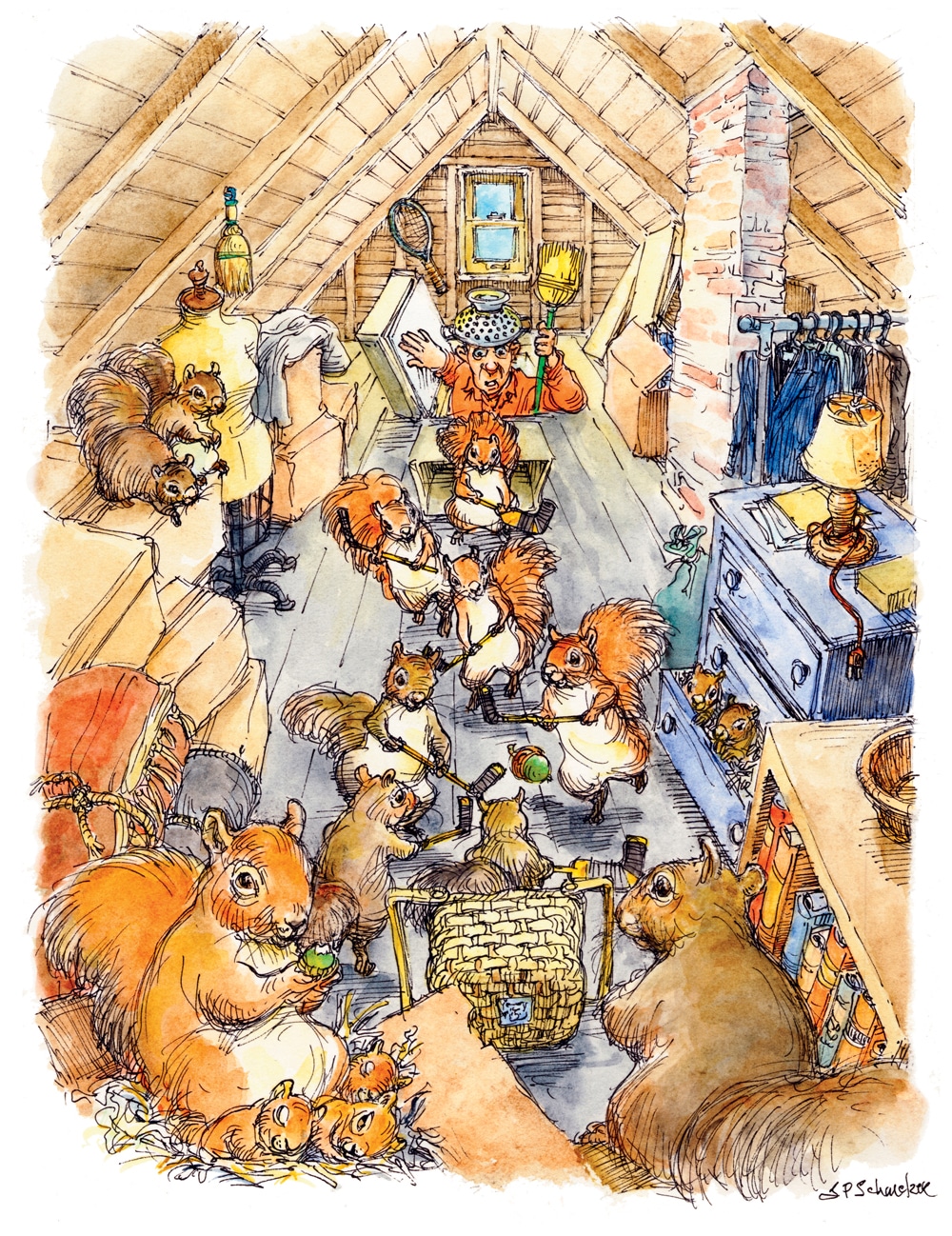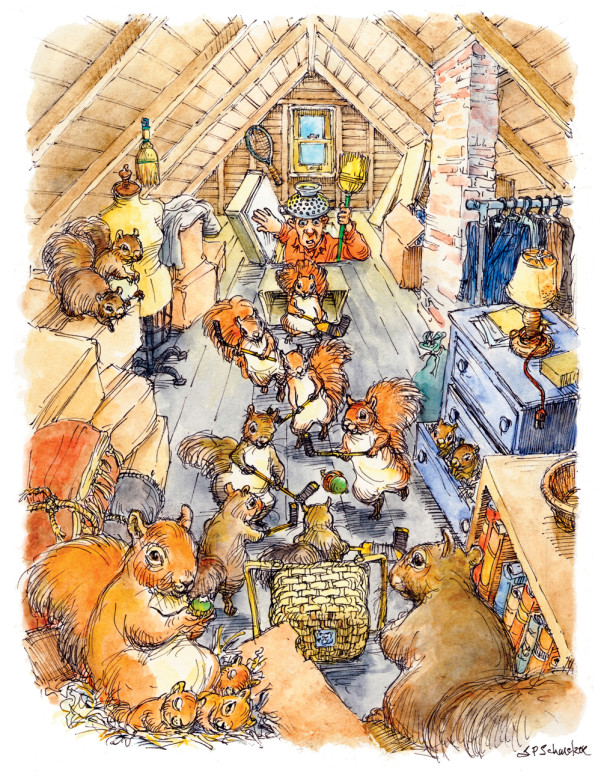How to Get Squirrels Out of Your Attic | Ask the Expert
You could try simply asking the squirrels to leave. But we think you’ll have better luck if you heed the advice of wildlife removal pro Bob Noviello.

Coffee By Design | Portland, Maine
Photo Credit : Katherine KeenanLive in an old New England home long enough, and you’ll hear the rattle and roll of what sounds like a game of acorn hockey being played directly over your head—or, worse, the subtle sound of burrowing that, once you’ve focused on it, seems to echo incessantly through a quiet house. If squirrels have claimed your attic as their home, removal expert and wildlife biologist Bob Noviello of Windham, New Hampshire, is happy to offer some advice on how to evict your uninvited guests.

Photo Credit : J.P. Schmelzer
Know Your Intruders
If a squirrel breaks into your house, Noviello says, it’s usually looking for a place to give birth. A female squirrel can have a litter of three or four babies twice a year: once in late summer, once in winter. Baby squirrels are weaned in about 10 weeks.
…and What They Want
While squirrels are perfectly capable of building their own nests, they often prefer to look for an existing shelter to use. Like bats and other occasional home invaders, squirrels are able to detect minute variations in air pressure that indicate the presence of a gap or void in a structure. They love attics because they’re protected and warm, and there’s storage space and often food. Attics offer lots of options for chewing, too, like beams, wires, ducts, and even pipes.
…and Why They Have to Go
Squirrels typically don’t carry diseases that harm humans; however, they are known to carry potentially disease-bearing parasites. Squirrels also leave droppings, which pose health risks such as leptospirosis and salmonella. More urgently: Squirrels can create a major fire hazard if they chew on a home’s electrical wires.
Skip the Quick Fixes
Although there are people who claim to have had success with mothballs or repellents that use some kind of predator urine, Noviello says that none of these remedies will consistently drive squirrels away. High-pitched noisemakers don’t do much either, and while a strobe light might annoy your furry visitors, they won’t be discouraged for long.
Poisons, on the other hand, may work—but they’re a bad idea for a couple of reasons. First, there are none that specifically target squirrels, so whatever toxic bait you decide to use may well be ignored by the squirrels and end up killing something else. Second, odds are high that if you do poison a squirrel, it will die in your house in a hard-to-reach place. “There are situations where extermination is appropriate,” Noviello says, “but only when it is done humanely by a professional.”
Forgo the Relocation Route
Many think that trapping and relocating the squirrels is the kindest strategy. Noviello disagrees, pointing out that any animal you relocate to the woods won’t simply take up residence there; it’ll try to find its way back to familiar territory and its food supply, exposing it to predators and traffic and all manner of distress. “Nobody likes to hear it,” Noviello says, “but often relocation kills the animal, one way or another.”
Bar the Reentry Point
The best way to evict squirrels, Noviello says, is to close up all of your home’s potential critter entry points except one. At that last remaining exit, install an “excluder,” which is essentially a one-way door that will allow squirrels to go out but not to reenter. Be careful, though, not to “exclude” a mother squirrel before her babies have matured. And never close off all openings while squirrels are still inside: They’ll do damage attempting to get out, and may even end up in the living quarters of your home.
Sweat ’Em Out
The good news, according to Noviello, is that if you can be patient, Mother Nature will do some of the heavy lifting for you. “Wait for them to raise their young in the attic,” he says, “and by late June or early July the heat will drive them out.”
Keep Up the Fight
Getting squirrels out of your attic is step one. The ultimate goal, of course, is to keep them out. If the conditions that initially attracted them persist, your squirrels—or their friends—will soon return. To help prevent that from happening, replace any old screens on end vents and repair any areas of rotting wood. (Squirrels are very adept at finding even the smallest of entry points.) Seal up openings with material that will be unpleasant to chew through, like wire mesh or steel wool. However, don’t expect your furry friends to give up without a fight. “Once a squirrel has learned how great it is to live in a house,” Noviello says, “they can get pretty determined.”
Bob Noviello can be reached at wildlifecontrolone.com.







Best advice I ever had was from my pest control friend who advised: Loud noise scares them away. Stick a radio (or boombox) set at highest volume in the attic. Intruders will run. Of course, you have to observe where and how they got in and close off the access point once they run out so they don’t come back!